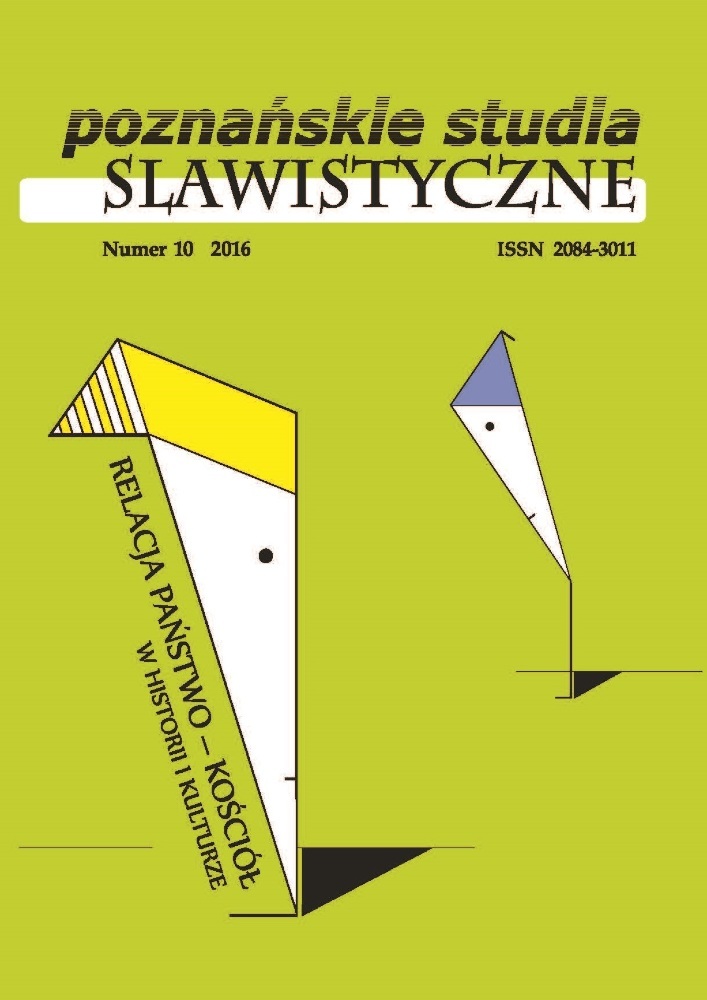Abstrakt
The main purpose of the article is to find the answer, how two different religious traditions (reformative and catholic) influenced the process of building of historical consciousness of secular Czech society in the interwar period. During the first years of the independent Czechoslovakia existence, a typical phenomenon was a domination of the hussite historical reminiscences, which culminated in the year 1925, during the national celebration of the 510 anniversary of Jan Hus’ death. In the same time, it was possible to notice voices, which were questioning an asymmetric construction of historical consciousness and emphasizing necessity of ‘extracting’ also from other historical traditions. The opportunity to merge two main Czech spiritual traditions occured in the year 1929, when not only Catholic Church, but also Czechoslovak state organised Saint Wenceslas Millennium celebration. ‘Over-confession’ and ‘over-ethnical’ meaning of state parts of celebration should be considered as the successful change of unequal paradigm of historical consciousness, as well as the beginning of gradual process changing Czech society from the community defined in the ethnical-language way into civic society.
Bibliografia
Čapek K., 1981, Válka s Mloky, Praha.
Ehrenberger T., 2002, Husův svátek jako příčina diplomatického konfliktu mezi Československem a Vatikánem, „Dějiny a současnost” nr 4, s. 23–27.
Górny M., 2001, Między Marksem a Palackým. Historiografia w komunistycznej Czechosłowacji, Warszawa.
Gut K., Kapras J., Novák A., Stloukal K., (red.), 1934, Svatováclavský sborník I, Praha.
Hořínek Z., 1993, Světec jako dramatický hrdina, „Divadelní revue” nr 4, s. 18–26.
Kaňák B., 2007, Církev československá husitská. Stručná historie, <http://www.ccsh. cz/view.php?id=18>, 22.08.2015.
Masaryk T.G., 1990, Jan Hus. Naše obrození a naše reformace, Praha.
Med J., 2010, Literární život ve stínu Mnichova (1938–1939), Praha.
Pająk A., 2006, Jarosław Durych a spór o sens czeskich dziejów, Opole.
Pekař J., 1990, Svatý Václav, w: J. Pekař, Postavy a problémy českých dějin, Praha, s. 13–58.
Peroutka F., 1991, Jací jsme, Praha.
Pospíšil C.V., 2015, Husovská dilemata, Kostelní Vydří.
Rak J., 1994, Bývali Čechové. České historické mýty a stereotypy, Jinočany.
Šalda F.X., 1990, Šaldův zápisník I (1928–1929), Praha.
Taussig P., 2009, Český biják, Praha.
Toman K., 1997, Básně, Praha.
Licencja

Utwór dostępny jest na licencji Creative Commons Uznanie autorstwa – Bez utworów zależnych 4.0 Międzynarodowe.
